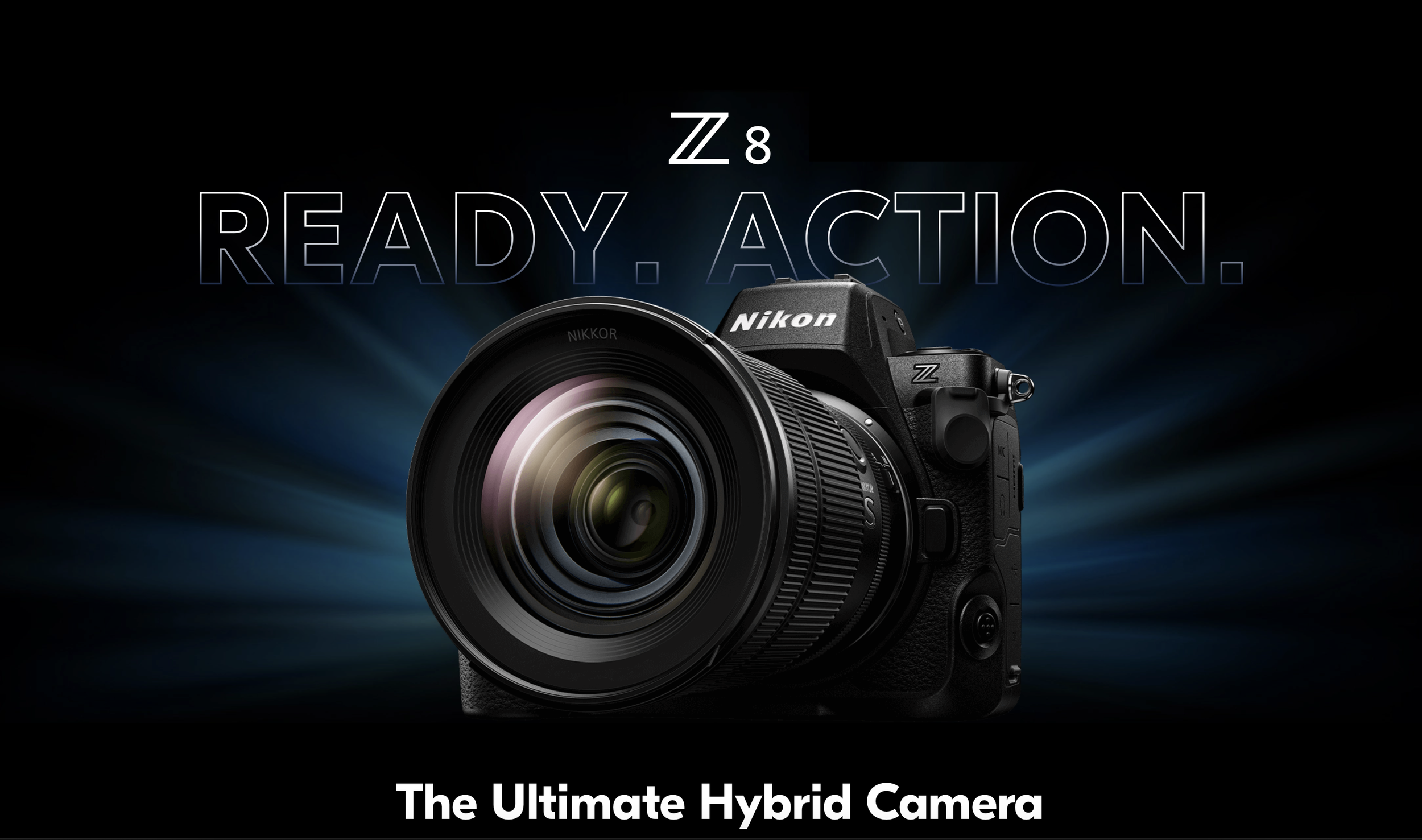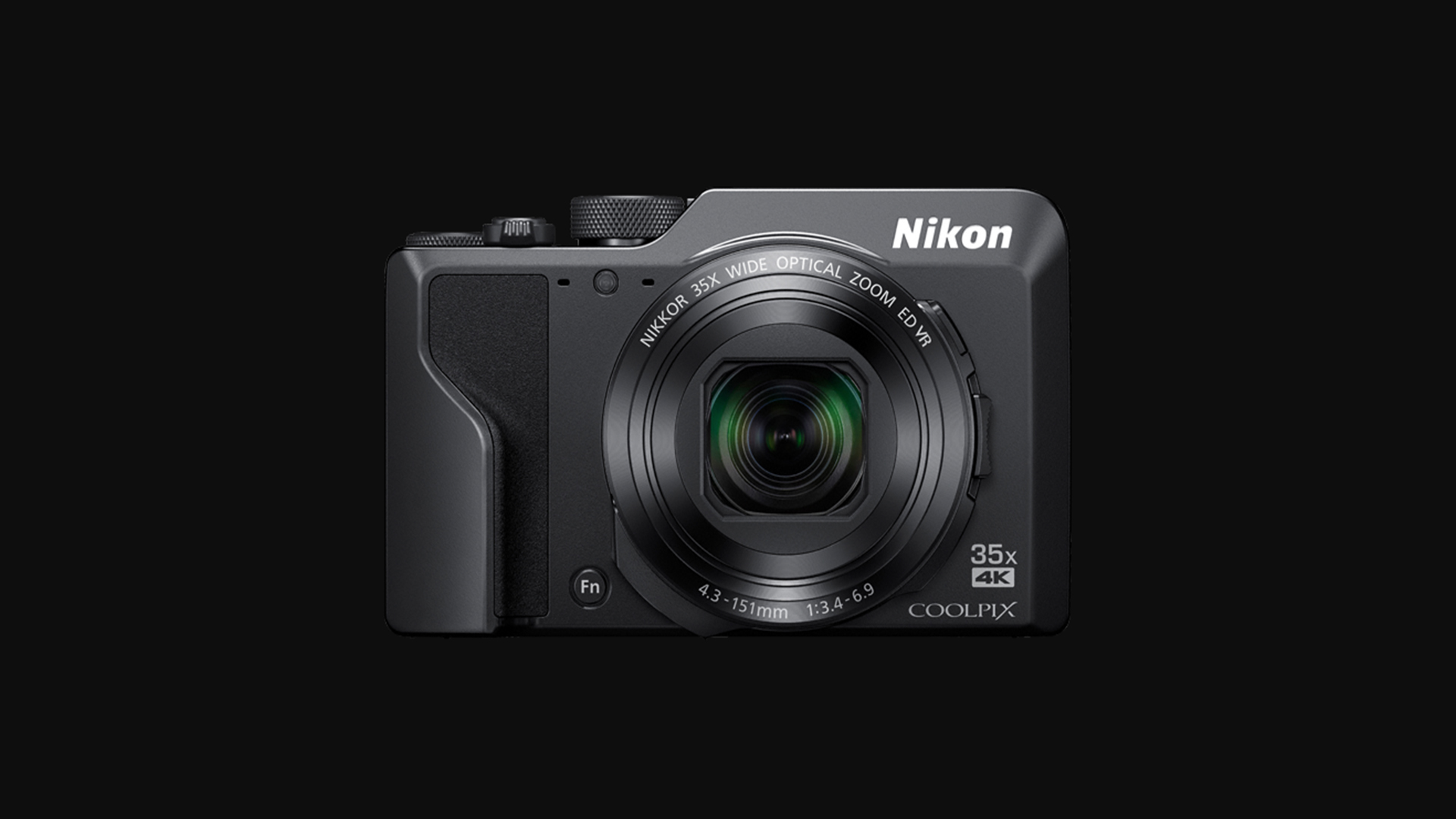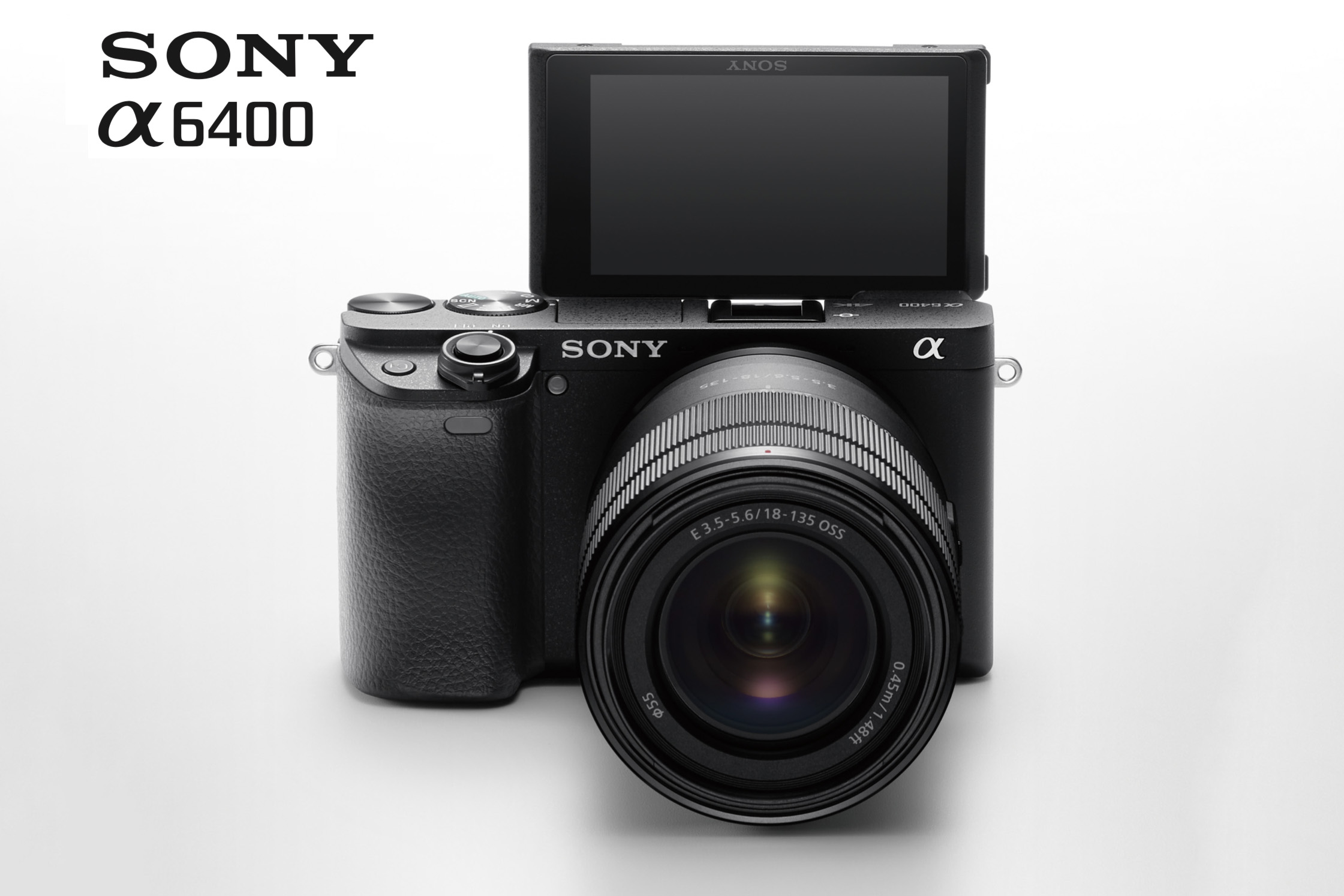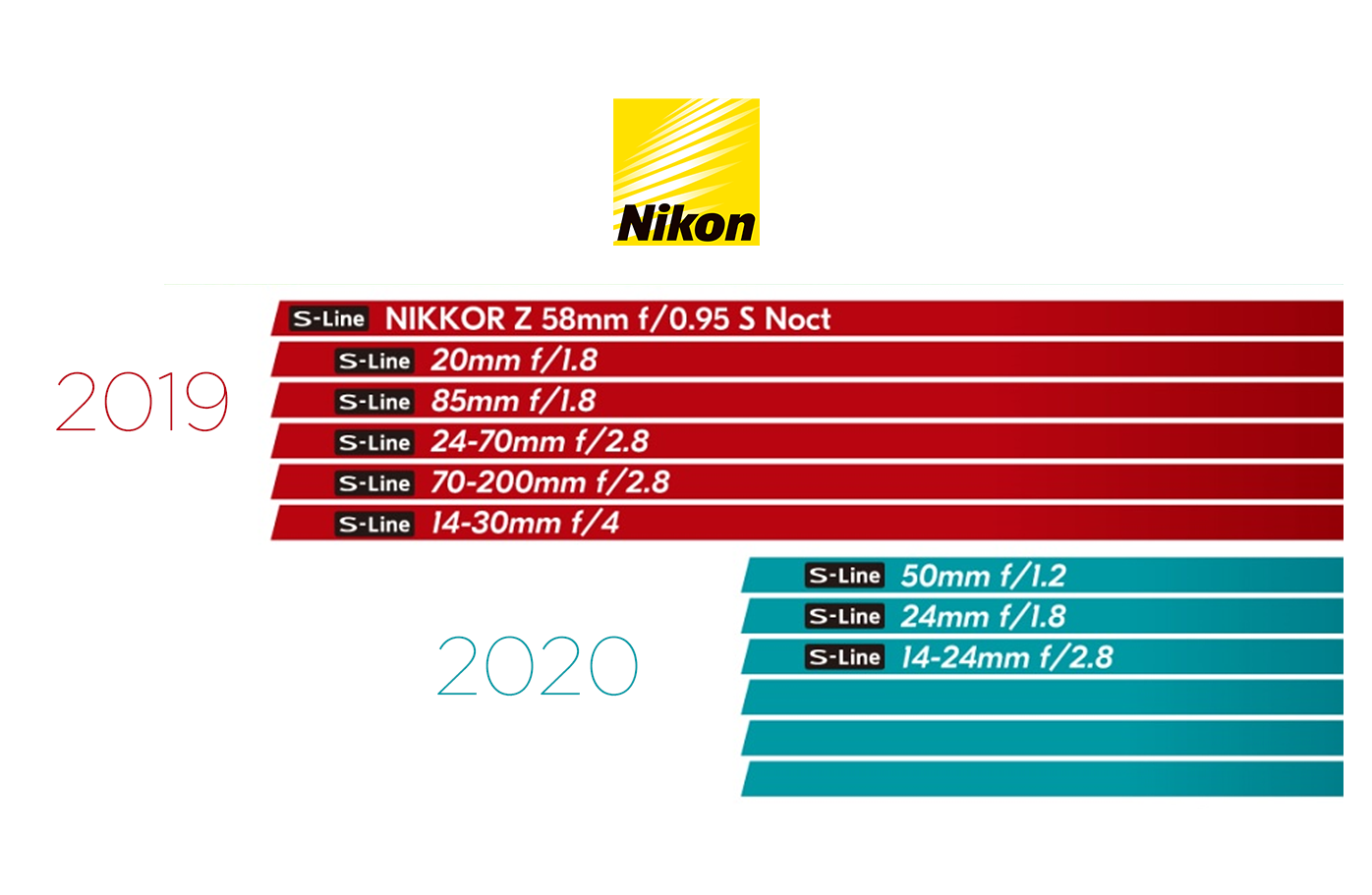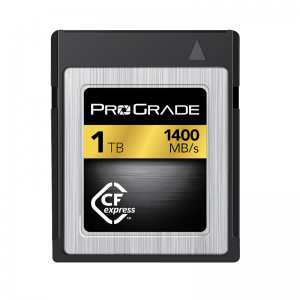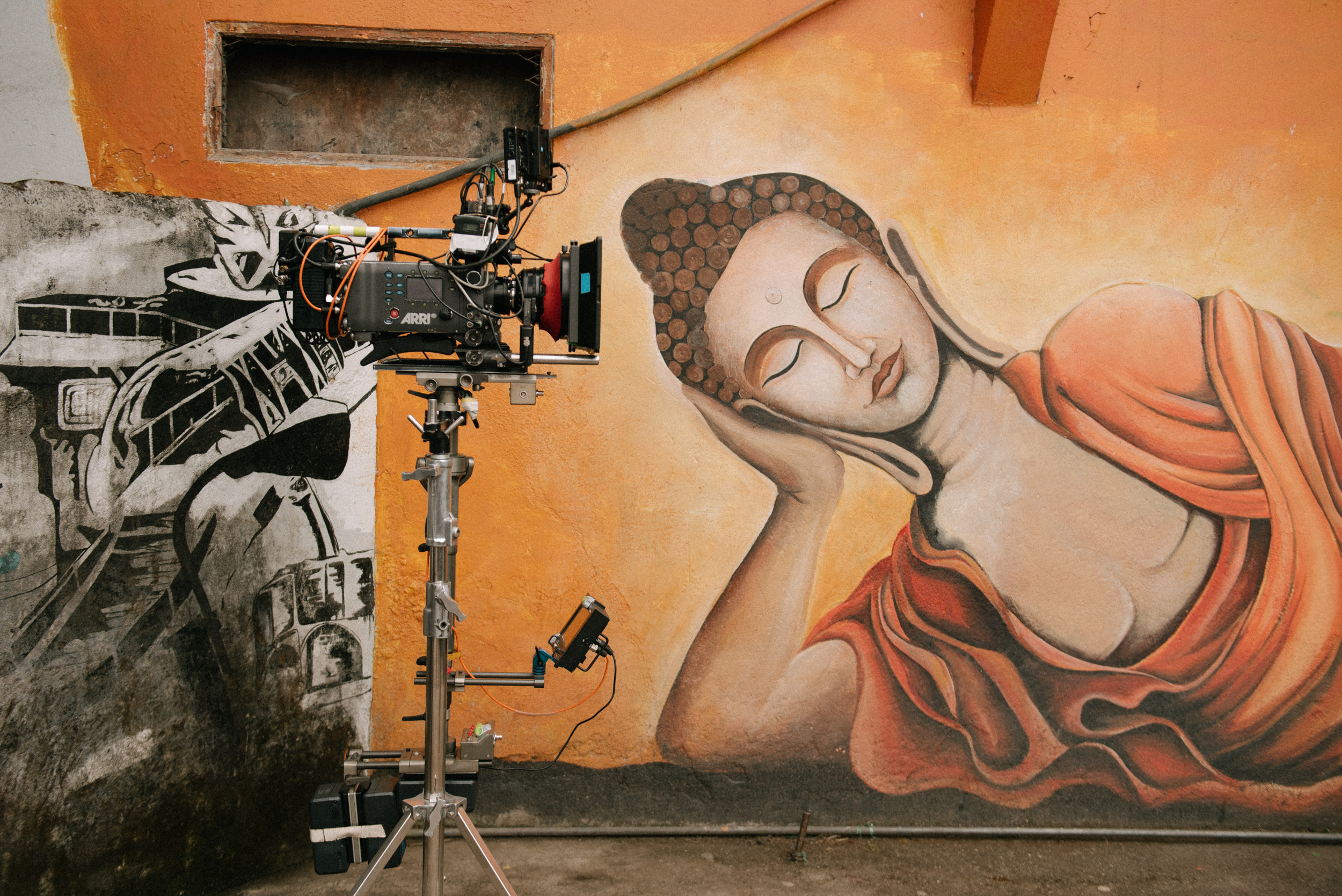
CES 2019 - Highlights and things to watch out for
CES 2019 highlights
CES 2019 is a wrap folks. The show that brought us a week long of excitement and gadget goodness will return after a year.
Here were some of our favorite camera products that were showcased at CES 2019.
Nikon Z Series 14-30MM f/4.0 Lens
Source: Nikon Global
Nikon introduced the new Nikorr Z series 14-30 F/4 S ultra wide zoom lens on the first day at CES 2019. The NIKKOR Z 14-30mm f/4 S is an ultra-wide-angle zoom lens that covers a 14 mm to 30 mm range of focal lengths with a constant maximum aperture of f/4 throughout the range. According to Nikon, the lens is part of the S-Line, a newly designated grade of NIKKOR Z lenses that adhere to a new benchmark in optical performance, creating new definitions of design principles and quality control.
Nikon Firmware Upgrade
Nikon has announced a firmware update that will enable raw video output to an external recorder, Eye AF and CF Express card compatibility. Nikon’s new mirrorless cameras, the Z6 and Z7 will be more than capable of outputting a RAW signal to the Atomos Ninja V.
With this new firmware update Nikon intends to announce its long awaited Eye auto-focus feature in their mirrorless cameras like the Z6 and the Z7. The Eye AF is a very good helping-hand when it comes to taking pictures such as portraits, event or street photography scenario. According to Nikon, the technology/feature is in its last and final implementation phase. In the demonstration video below, you can see it acquires the eye as fast as a Sony/Fujifilm has been able to do with their mirrorless technology.
Source: Nikon Europe YouTube Channel
Nikon has also announced that their new mirrorless cameras will be compatible with the new CF express cards after the firmware update. These cards use the same form-factors as the XQD cards which are the only data transfer interface used in the Z6 and Z7.
Source: ProGrade Digital Website
DJI Smart Controller
Source: ProGrade Digital Website
Source: DJI Global
DJI has introduced a smart controller for some of the drones it makes. By some we mean the latest drones like the Mavic 2 Zoom and the Mavic 2 Pro. DJI Smart Controller comes with a built-in microphone and speaker for “expanded options” such as live streaming. It can also playback video through the HDMI output port at 4K with H.264 or H.265. Of course, wi-fi is required for live streaming.
Source: DJI YouTube Channel
Sharp Micro Four Thirds 8K Camera
Sharp 8K Pocket Camera
Sharp introduced a prototype 8K Micro Four Thirds pocket camera. The camera is more than just a concept and it will be officially announced this year. In a lot of ways, the camera looks quite similar in design to a 4K Black Magic Pocket Camera.
According to Sharp, the camera will record 8K (7680×4320) at up to 30fps using H.265 compression. Sharp also claims that they are working on giving the camera the ability to record 8K 60p. The camera looks to be very minimalistic in its design, with very few physical buttons or dials. It has an SD card slot and we believe it to be UHS II type, as per the requirement of the footage.
Sharp claims it to be the ideal Vlogger/YouTuber camera because of its 5 inch flip-out touchscreen. Sharp has incorporated a very large screen because getting critical focus when shooting in 8K is not an easy task.
Nikon Z6 Filmmaker’s Kit
Source: Nikon Global
For users who are looking to take full advantage of the Nikon Z 6’s industry-leading video capabilities, this powerfully cinematic camera is now available as part of a new Filmmaker’s Kit. The bundle includes a range of equipment that helps users unlock the Z 6’s advanced video features and powerful potential.
Here’s everything included in the filmmaker’s kit:
NIKKOR Z 24-70mm f/4 S lens
Mount Adapter FTZ
Atomos Ninja V 4K HDR 5” Monitor Recorder
Rode VideoMic Pro Plus
MOZA Air 2 3-Axis Hand-Held Gimbal Stabilizer
Additional EN-EL15b battery
Coiled HDMI cable
12-month Vimeo Pro membership
Complimentary Nikon School Online class
Lexar 1 Terabyte SD Card
Source: Lexar Global
Lexar announced a 1 TB 1TB 633x SDXC™ UHS-I card to end your sorrow.
The main features are:
Leverages Class 10 UHS-I (U3, V30) technology for a read transfer speed up to 95MB/s (633x)*
Capture high quality images and extended lengths of stunning 1080p full-HD, 3D, and 4K video**
Enjoy shooting longer without changing cards with this high-capacity 1TB memory card
High-speed file transfer from card to computer to dramatically accelerate workflow
Kodak Smile Camera
Source: Kodak Global
Kodak has announced a new Instant Camera range which offers you the choice of a real print out or a digital copy of your image. In all, two cameras have been revealed: the 16-megapixel Kodak Smile Classic and the Kodak Smile, which offers up an LCD screen, a 10-megapixel digital camera, and microSD card slot.
Ista360 TITAN
Source: Insta360 Global
Launched at CES 2019, the Titan produces 10,560 x 5,280 video and stills. Not only that, it can capture both in 2D (monoscopic) and 3D (stereoscopic) formats.
Ordinary 360 cameras use a two small smartphone-size sensors back to back, with a 180+ degree fisheye lens over each, then stitch the two hemispherical images into a single 360 degree image in-camera in real time. The Titan uses the same advanced FlowState image stabilisation system used in its Insta360 One X model.
So those were the best highlights of CES 2019 that caught our eye.
What do you think we missed? Comment down below.
Sony's major firmware adds new features to Sony A9, A7iii and A7Riii
Sony announced a major feature upgrade to its a9, a7iii and a7riii mirrorless cameras that will be available via a firmware update.
After the big announcement of the new Sony α6400, Sony announced major firmware updates to its acclaimed full-frame α9 camera and the Sony Alpha A7III and Sony A7RIII cameras.
Source: Sony Global
Sony just released its new APS-C camera α6400, which will supposedly target Vlogger’s/YouTuber’s under various demographics.
Just after the announcement Sony released a statement on various platforms as well as on their official website that they shall be releasing their new firmware update for their mirrorless camera, Sony α9, they have named it the Version 5.0 update.
The upcoming firmware Version 5.0 for α9 adds Sony's newly developed Real-time Tracking mode for object tracking. This mode utilizes Sony's latest algorithm—including Artificial Intelligence-based object recognition—and processes color, subject distance (depth), pattern (brightness) as well as spatial (distance) information to ensure that all subjects can be captured with extreme accuracy and precision. When photographing or videographing humans or animals, face and eye position information is recognized by AI and the subject's eye is monitored in real time with extremely high tracking precision. In addition, "Tracking On" helps initiate real-time tracking at any time by simply pressing a custom-assigned button and "Touch Tracking," which quickly activates through the touch screen.
Source: Sony Global
Source: Sony Global
“With this new firmware version 5.0, Sony's acclaimed α9 camera will receive advanced "Real-time Eye AF," the latest version of Sony's acclaimed Eye AF technology. This exciting new capability employs AI-based object recognition to detect and process eye location data in real time, resulting in improved accuracy, speed and tracking performance of Eye AF. In all autofocus modes, the camera can automatically detect the eyes of the subject and activate Eye AF with a half press of the shutter button, and the camera will seamlessly track the eyes at all times when in AF-C mode. The new firmware will also enable photographers to select the preferred eye (left or right) of their subject as the focus point.”
- Sony Global
Other focusing capabilities that will be available with the new firmware include Touch Pad, Touch Tracking, an extended phase-detection AF aperture range that has been increased from F11 to F16, and Fast Hybrid AF for movie shooting that provides smooth, automated focusing for movies.
Below are some of the points that Sony claims will help with the performance of the camera and what they have added to improve it.
The new Version 5 will improve image quality. The camera will more accurately account for subtle changes in light for smoother, more natural tonal gradations in elements like the sky.
Sony has added a new white balance algorithm in the firmware so that the images that are produced are more consistently balanced while burst shooting.
There are new functions for efficient controls and data management which basically include the My Dial and Dual Slot media menu improvement, rating and protect functions.
It also adds compatibility with Sony's new Imaging Edge Mobile application - the successor to the PlayMemories Mobile application.
The Version 6.0 firmware for the α9 camera will add Eye AF for animal eyes, an exciting new feature for wildlife photographers that will enable interval shooting functionality for creating time-lapse movies.
The new system firmware update Version 5.0 is scheduled for launch in March 2019, and Version 6.0 is scheduled for Summer 2019.
Do not worry. Sony has not forgotten about the α7R III and α7 III full-frame cameras.
Source: Sony Global
Source: Sony Global
Sony's popular α7R III and α7 III full-frame cameras will both receive enhanced Real-time Eye AF performance with the upcoming firmware Version 3.0. This will be available in AF-C mode with a simple half-press of the shutter button. Real-Time Eye AF for animals will also be available.
The cameras will also receive interval recording functionality that will allow for simple creation of time-lapse movies. The new feature can be set for anywhere between 1 and 60 seconds, with a total number of shots from 1 to 9999. AE tracking sensitivity can also be adjusted to "High", "Mid" or "Low" during interval recording, allowing for reduced changes in exposure over the shooting interval.
The new system firmware update Version 3.0 is scheduled in April 2019.
If you don’t know how to update the firmware of your Sony camera then watch our video below.
Source: GMax Studios YouTube Channel
Sony Alpha α6400 Mirrorless Camera Announcement and Specifications
Sony Alpha A6400 α6400 announced
Sony Announced the Next-Generation α6400 Mirrorless Camera With Real-time Eye Autofocus, Real-time Tracking & World’s Fastest Autofocus.
The α6400 brings many of Sony’s most advanced technologies from their acclaimed full-frame lineup to a compact, lightweight APS-C camera. The speedy new camera boasts the world’s fastest( autofocus (AF) acquisition of 0.02 seconds, while also introducing the new advanced “Real-time Eye AF” and ”Real-time Tracking” capabilities. Also included are high-speed shooting at up to 11 fps with AF/AE tracking, a new-generation BIONZ X image processing engine that produces excellent image quality, 4K video recording, a fully 180-degree tiltable LCD touch screen and much more, making it the ultimate tool for all types of creators ranging from professionals to vloggers.
MAIN FEATURES
World’s Fastest (i) 0.02 seconds (ii) AF acquisition speed plus 425 phase-detection and contrast-detection AF points covering approximately 84% of image area
Advanced Real-time Eye AF
New Real-time Tracking for object tracking
24.2MP(iii) APS-C Exmor™ CMOS image sensor and latest-generation BIONZ X™ image processor
180-degree fully tiltable LCD touch screen for self-recording
High-speed continuous shooting at up to 11 fps(iv) mechanical shutter / 8 fps(iv) silent shooting with continuous AF/AE tracking
High-resolution 4K(vi) movie recording with full pixel readout and no pixel binning, plus advanced AF speed and stability
Interval recording for time-lapse videos
View the sample photographs here OR download the brochure here.
THIS IS HOW THE REAL TIME TRACKING WORKS
“The α6400 represents another important step in the growth of Sony’s overall interchangeable lens camera lineup,” said Neal Manowitz, vice president of Imaging Solutions at Sony Electronics. “By bringing so many of our latest and most advanced technologies from full-frame cameras to a brand new APS-C model, we are giving today’s creators more options than ever to realize their vision.”
VIDEO FEATURES
The versatile α6400 is an exceptional video camera, offering internal 4K (QFHD: 3840 x 2160) movie recording with full pixel readout and no pixel binning to collect about 2.4x the amount of data required for 4K movies, and then over samples it to produce high quality 4K footage with exceptional detail and depth. Focusing during movie shooting is fast and stable thanks to upgraded Fast Hybrid AF technology, which keeps the subject in constant smooth focus no matter the scene, and even if an object crosses in front of the camera. This advanced AF plus touch focus functionality make it an ideal camera choice for many vloggers and video creators that are regularly creating and uploading content online.
For time-lapse movie creation(ix), the new camera features built-in interval recording that can be set anywhere between 1 and 60 seconds, with a total number of shots from 1 to 9999. AE tracking sensitivity can be adjusted to “High”, “Mid” or “Low” during interval shooting, allowing for reduced changes in exposure over the shooting interval.
Additionally, for the first time in Sony APS-C mirrorless camera, the new model includes an HLG (Hybrid Log-Gamma) picture profile, which supports an Instant HDR workflow, allowing HDR (HLG) compatible TV’s to playback beautiful, true-to-life 4K HDR(x) imagery. Further, both S-Log2 and S-Log3 (Note: S-Log2 and S-Log3 are premised on processing pictures- whatever that means!!!) are available for increased color grading flexibility, as well as Zebra functionality, Gamma Display assist and proxy recording. The camera can also record Full HD at 120 fps(xii) at up to 100 Mbps, allowing footage to be reviewed and eventually edited into 4x or 5x slow-motion video files in Full HD resolution with AF tracking.
AVAILABILITY AND PRICE
The α6400 will ship in February 2019 for a suggested retail price of $900 USD. It will also be offered as a kit with the 16-50mm F3.5 – 5.6 lens for a suggested retail price of $1,000 USD. It will also be offered as a kit with the 16-50mm F3.5 – 5.6 lens for a suggested retail price of $1,000 USD. As for the availability and price in India, it is matter of when Sony Alpha India releases it depending upon the demand in the US and International markets. We will let you know as soon as we hear anything. ubscribe to our newsletter to be in the loop.
At what price point would you buy the Sony Alpha A6400 camera in India? Let us know in the comments.
Medium format becomes affordable - finally!
Fujifilm India reduces the price of medium format Fujifilm GFX 50R and lenses.
Fujifilm India seems to be on a roll! After an amazing price cut on the Fujifilm X-T3, they have announced a great offer on the Fujfilm GFX 50R price in India. This is great news for photographers who wanted to embrace the medium format but found the prices a deterrant. Not only were the prices of the medium format camera bodies really expensive, one also had to think of the cost of lenses.
According to Fujifilm India, not only have they reduced the price of the medium format Fujifilm GFX 50R but also promise a saving of upto Rs. 75,000 on the MRP of the lens.
The price combinations are as follows:
Fujifilm GFX 50R body with GF 63mm f2.8 R WR lens will be Rs. 3,84,923
Fujifilm GFX 50R body with GF 32-64mm f4 R LM WR lens will be Rs. 4,61,923
Fujifilm GFX 50R body with GF 45mm f2.8 R WR lens will be Rs. 4,00,323
As with any other camera and lens combination, your camera dealer might be willing to give you a further discount on the MRP (Maximum Retail Price).
Does this seriously make you consider buying a medium format camera like the Fujifilm GFX 50R? Let us know in the comments.
Wildlife Photography - The Sad Reality | Diinesh Kumble in frame with Gorky M
We, the ones with reasoning, have it upon us to show concern for these animals.
Wildlife Photography is supposed to be an art that’s bigger than itself. Because we, the ones with reasoning, have it upon us to show concern for these animals.
“Wildlife photography is a genre of photography concerned with documenting various forms of wildlife in their natural habitat.”
Photograph by © Diinesh Kumble
As a wildlife photographer, you try to capture the diversity and the behavior of these animals in their natural habitat because we don’t see them very often. But the burgeoning of social media and the availability of top end cameras in the hands of every person has also increased wildlife tourism in the last couple of years. What used to be a moment of awe has now turned into an opportunity to photograph a wild animal as a means of validation on social media. Enthusiastic tourists don't even read up on the rules and regulations before diving in with their cameras, and they seem to be getting more and more desensitized with every attempt or Safari.
There is also a need for high-end camera gear to be able to photograph these animals without becoming a nuisance, and most of the tourists forego these requirements because it’s a one time thing.
Live and let live. Photograph by © Diinesh Kumble
“Calling yourself a wildlife photographer adds a bit of glamour (to their personality). They think that they’ve done something. They’ve shot an animal for fun.”
About a decade ago, wildlife photography was conducted by passionate photographers who had to stick out in the wild, with no amenities like electricity or food. There were certain challenges to the art and only the ones who had planned enough were able to make a difference. There was a major emphasis on not disrupting the laws of nature. You could forget about cellphone receptions, too.
“What brought me to wildlife photography was the passion to be out in the open and amongst nature. ”
An increase in the popularity of wildlife photography combined with the desperation of forest officials to make a quick buck has enabled them to turn a blind eye to any unethical practices by the amateur and safari guides. This often has devastating consequences, and it’s mostly the animals that suffer.
Wildlife photography is an art that also needs your compassion. Photograph by © Diinesh Kumble
The disturbance caused by the increasing number of off-road trips taken by safari agents, camera flashes being triggered, catcalling and hooting have led some of the bigger animals to attack the jeeps and tourist vehicles, sometimes even wounding people fatally. And the number of these attacks is increasing by the day.
Wildlife tourism is booming, and with more and more people paying visits to wildlife sanctuaries, herds are motivated to migrate to a different territory, often encountering human settlements on the way and panic stricken villagers don’t always take kindly to a tiger in the vicinity.
ALSO READ: “There isn’t a demand for in-depth stories like there used to be" - National Geographic Photographer Ira Block
Some reckless photographers have resorted to feeding the animals, playing back recordings of mating calls to get a close-up shot of an exotic or preserved species. The safari guides bring their jeeps too close to the animals on the whim of their clients just so they can score a close-up photograph.
Rare Species: a lion tailed macaque photograph by © Diinesh Kumble
“Today wildlife photography has become like game-hunting. Instead of killing an animal, you’re taking a picture of it. But the way the people chase (the animal) sometimes, it hurts to look at it.”
A lot of times, the malpractices are discovered and the responsible persons are suspended or fined, but it has become a mindset of forest officials to employ unethical means to help their clientele get their spectacular #WildlifeShot
SOURCE: Getty Images
To be able to make a difference, we have to practice patience and kindness in equal measure. Sometimes, not disrupting a natural habitat is more important than getting a coveted picture. The animals are not there for our amusement.
The surge in the wildlife tourism industry has also resulted in saturation of wildlife photography. Anyone with a camera thinks they can go on a Safari, come back with a few pictures and pass it off as wildlife photography. “There are not many people who can tell the difference between an image taken by a wildlife photographer, and a regular person”, says Diinesh Kumble.
“There’s a very thin line between safari photography and wildlife photography which is being muddled today. A lot of people think that by going on a safari three hundred times in a jeep is wildlife photography. It is not. You go in a jeep just to protect yourself.”
Slender Loris are a genus that’s native to India and Sri Lanka. Picture by © Diinesh Kumble
And it’s not just the pictures you’re there for. As a wildlife photographer, you also have a responsibility towards the animals you’re photographing, believes Diinesh Kumble. He has an affinity for a small species called the Slender Loris, commonly known as Paapa or Kaadoo around Karnataka. However, there are many myths surrounding the creature, one of them being that it has magical properties - which has lead to the poaching of this little creature in order to be sold on the black market. Click here to watch a video documenting this unspeakable trade based on superstition and hearsay.
Every year, hundreds of Slender Lorises are smuggled illegally to meet the demands of the exotic pet trade. Photograph by © Diinesh Kumble
Diinesh has been instrumental in speaking and campaigning for the preservation of the Slender Loris, and has even adopted it as the mascot for Kaadoo, one of the companies he helped form. If your heart goes out to these little creatures and you would like to make a difference, please visit http://www.peopleforpaapa.org/
While ignorance and unethical behavior certainly wounds the art of wildlife photography, you shouldn’t be discouraged to give it a go. Wildlife photography is a crucial field in photography. It contributes to the conservation of and in helping raise awareness on a species, not to mention the role it plays in ecological and biological studies and the various aspects of science. To learn more about wildlife photography, watch Diinesh Kumble speak with Gorky M on the nuances of the craft by clicking on the video below.
Sharp Unveils It's New M4/3 8K Pocket Camera
Sharp’s 8K Camera, the YouTuber’s delight?
8K video anyone? Sharp Global introduces the 8K micro four thirds pocket camera
Las Vegas, USA: Day 2 at the CES 2019, Sharp has introduced a prototype 8K Micro Four Thirds pocket camera. The camera is more than just a concept and it will be officially announced this year. In a lot of ways, the camera looks quite similar in design to a 4K Black Magic Pocket Camera.
Sharp 8K Pocket Camera
Black Magic Pocket Camera (4K)
According to Sharp, the camera will record 8K (7680×4320) at up to 30fps using H.265 compression. Sharp also claims that they are working on giving the camera the ability to record 8K 60p. The camera looks to be very minimalistic in its design, with very few physical buttons or dials. It has an SD card slot and we believe it to be UHS II type, as per the requirement of the footage.
Sharp claims it to be the ideal Vlogger/YouTuber camera because of its 5 inch flip-out touchscreen. Sharp has incorporated a very large screen because getting critical focus when shooting in 8K is not an easy task.
It has a Mini XLR port, full-size HDMI, USB-C, headphone, and a microphone jack.
As an 8K camera with a Micro Four Thirds sensor has tiny pixels, so we wouldn’t expect the camera to be very good in low light shooting conditions. Dynamic range could also be limited.
Let us know below what you think about the new Sharp 8K concept pocket camera.
Yay or Nay?
Fujifilm X-T3 price in India reduced
Fujifilm India slashes price on the Fujifilm X-T3.
Fujifilm India seems to be going all out in a bid to woo visual artists in India. Fujifilm India recently announced a huge cut in the Fuji X-T3 kit (Camera body+18-55mm lens) as well as the Fujifilm X-T3 body only. On top of that they have announced that people who buy the camera or kit along with any of the three lenses listed below will get two additional batteries and a battery grip free. The price of this combination itself is worth Rs. 37,000.
The three listed lenses are:
Fujinon XF 10-24mm f4 R OIS
Fujinon XF 16-55mm f2.8 R LM WR
Fujinon XF 50-140mm f2.8 r LM OIS WR
The new Fujifilm X-T3 price in India is Rs.1,38,199 for the kit and Rs. 1,08,699 for the body only.SEE THE IMAGE BELOW.
Since this is the MRP (maximum retail price) your dealer might offer you an additional discount (as mine always does!)
Does the new pricing make this more affordable for you? Leave us a comment.
Fujifilm XT3 price in India
READ THE FUJIFILM X-T3 REVIEW HERE
You can watch our review of the Fujifilm X-T3 here:
Fujifilm XT3 Review | Video & Photo Test
Fujifilm India XT3 review Earlier this month, we had brought you the Fujifilm X-T3 unboxing, and like we promised: in this photography video, we bring you the much awaited Fujifilm X-T3 review. Fujifilm X-T3 is a 26 Megapixel APS-C Sensor Camera that featuring Fujifilm's latest processor, The X-Processor 4.
Nikon Releases New Nikkor Z Series 14-30 F/4 S Ultra Wide Zoom Lens
Nikon releases the ultra-wide-angle NIKKOR Z 14-30mm f/4 S zoom lens compatible with the Nikon Z mount system.
The NIKKOR Z 14-30mm f/4 S is an ultra-wide-angle zoom lens that covers a 14 mm to 30 mm range of focal lengths with a constant maximum aperture of f/4 throughout the range.
Nikon introduced the new Nikorr Z series 14-30 F/4 S ultra wide zoom lens on the first day at CES 2019.
The 14-30MM f/4 weighs up to 485 grams which if we compare it to the old 14-24MM f/2.8 (which is almost 10 years old) weighs at a 1,000 grams. This 14MM is the first full-frame FX lens that will allow the photographers to attach various types of screw-on filters (82MM) to the front of this ultra-wide lens. This will in-turn will expand creative possibilities for photographers and cinematographers, infinitely.
“A compact 14 to 30mm zoom range with a fixed f/4 aperture and outstanding image quality. Experience edge-to-edge sharpness even when shooting wide open. Shoot stills or video in near-silence. This is an essential lens for travel, adventure, events, video and everything in between.”
-Nikon Global
The 14-30 mm is one of the most anticipated lens from Nikon in 2019.
According to the road map Nikon released last year, there are a few lenses due for this year which shall be released soon:
NIKKOR Z 58MM F/0.95 S Noct (2019)
NIKKOR Z 20MM F/1.8 (2019)
NIKKOR Z 85MM F/1.8 (2019)
NIKKOR Z 24-70MM F/2.8 (2019)
NIKKOR Z 70-200MM F/2.8 (2019)
NIKKOR Z 50MM F/1.2 (2020)
NIKKOR Z 24MM F/1.8 (2020)
NIKKOR Z 14-24MM F.2.8 (2020)
Source: Nikon Global
According to Nikon, the lens is part of the S-Line, a newly designated grade of NIKKOR Z lenses that adhere to a new benchmark in optical performance, creating new definitions of design principles and quality control. Nikon chose to start their year by releasing this lens which is a F/4.0 lens, instead of bringing out the big guns like; 85MM F/1.8 or the 70-200MM f/2.8.
For us, we don’t believe it is a professional lens, like Nikon promised us it would be.
Are you excited about the new 14-30MM f/4 lens?
Let us know your thoughts below.
Lexar announces 1TB Memory card
The 1TB card is here!
Having memory or storage problems?
Lexar announced a 1 TB 1TB 633x SDXC™ UHS-I card to end your sorrow.
The main features are:
Leverages Class 10 UHS-I (U3, V30) technology for a read transfer speed up to 95MB/s (633x)*
Capture high quality images and extended lengths of stunning 1080p full-HD, 3D, and 4K video**
Enjoy shooting longer without changing cards with this high-capacity 1TB memory card
High-speed file transfer from card to computer to dramatically accelerate workflow
“Almost fifteen years ago, Lexar announced a 1GB SD™ card. Today, we are excited to announce 1TB of storage capacity in the same convenient form factor. As consumers continue to demand greater storage for their cameras, the combination of high-speed performance with a 1TB option now offers a solution for content creators who shoot large volumes of high-resolution images and 4K video,” said Joey Lopez, Senior Marketing Manager.
The 1TB Lexar® Professional 633x SDXC™ UHS-I card is available now at an MSRP of $499.99.
Would you buy it?
DJI Smart Controller for Drones
DJI has announced a new smart controller for drones.
DJI has introduced a smart controller for some of the drones it makes. By some we mean the latest drones like the Mavic 2 Zoom and the Mavic 2 Pro.
DJI Smart Controller in the field.
The main features are:
5.5 inch 1080p screen
Ultra bright built- in screen at 1000 cd/m2
Ocusync 2.0 transmission
Video feed upto 8kms distance
Super fast setup speed of 30 seconds
Real time auto switching between 2.4 GHz and 5.8 GHz
4K 60p output via HDMI
Stable operation in temperatures ranging from -20°C to 40°C.
The 5000mAh battery gets fully charged in 2 hours and you can use it for up to 2.5 hours
Detachable control sticks
Also, the DJI Smart Controller comes with a built-in microphone and speaker for “expanded options” such as live streaming. It can also playback video through the HDMI output port at 4K with H.264 or H.265. Of course, wi-fi is required for live streaming.
The price of the Smart Controller is USD 649.
What do you think? Let us know in the comments.
According to DJI:
The DJI Smart Controller expands the ecosystem of accessories built around DJI's industry leading drone technology. Using a crisp 5.5” screen built into the controller itself, the Smart Controller allows pilots to quickly get their drone in the air without the need to connect a mobile device. It can be paired with DJI's newest drones including Mavic 2 Zoom and Mavic 2 Pro which use DJI's OcuSync 2.0 video transmission system, displaying vivid images in Full HD resolution. Drone pilots can take advantage of its compact, highly portable design that has been optimized for use in direct sunlight. It features an ultra-bright display with an output of 1000 cd/m2, twice the brightness of standard smart phones. A customizable Android dashboard supports DJI GO 4, DJI Pilot[2], along with various third-party apps such as editing programs. The DJI GO 4 app also touts several new features including SkyTalk, that allows pilots to livestream the drone’s camera feed to social channels including Facebook, Instagram and WeChat so that anyone can experience the thrill of flying a drone. Another new feature is DJI GO-Share which easily transfers imagery from the Controller to your mobile device. The DJI Smart Controller brings a new level of reliability when flying, with 2.5 hours of battery life and the ability to operate in adverse temperatures as cold as -4° Fahrenheit and as hot as 104° Fahrenheit.
Nikon Firmware Update Enables Raw Video, Eye AF And CF Express Cards On Z7 And Z6
Nikon just dropped this news. This is going to change the mirrorless game.
Nikon has announced a firmware update that will enable raw video output to an external recorder, Eye AF and CF Express card compatibility.
Apple ProsRes RAW Output
On the second day of the CES 2019, Atomos’ CEO Jeromy Young announced that the new Atomos Ninja V is compatible to record ProRes RAW with the new Nikon Z6 and Nikon Z7.
“Atomos is excited to work with Nikon on the development of ProRes RAW recording from Nikon’s Z series. This expands ProRes RAW to Ninja V and is the world’s first true full frame mirrorless to give raw video output. The combination will enhance content creation at all levels, from Social, through Pro Video and into Entertainment.”
- Atomos Global
According to Atomos, the Nikon Z6 and the Nikon Z7 output a stream of RAW data via a HDMi cable to the Ninja V. Capturing Apple ProsRes RAW with the Ninja V will unlock wider and complete control of the video image at highest quality possible.
Some believe that Atomos is using a closed loop protocol with-in the HDMi, which basically means that they are taking all the pixels and rearranging them.
Nikon’s new mirrorless cameras, the Z6 and Z7 will be more than capable of outputting a RAW signal to the Atomos Ninja V, it’s not unrealistic to expect that more cameras will be capable of doing this in the near future. We wouldn’t expect that we are likely to see either Canon or Sony enable a RAW output to be recorded from their cameras.
Eye AF
With this new firmware update Nikon intends to announce its long awaited Eye auto-focus feature in their mirrorless cameras like the Z6 and the Z7. The Eye AF is a very good helping-hand when it comes to taking pictures such as portraits, event or street photography scenario.
“Our much-anticipated Eye AF function that is currently in development for the Z7 and Z6 can effectively detect your subject’s eyes, making focusing so much easier! You’ll capture stunning shots where focus has been clearly acquired on the subject's eyes - good news for portrait and streetphotographers!”
-Nikon Global
According to Nikon, the technology/feature is in its last and final implementation phase. In the demonstration video below, you can see it acquires the eye as fast as a Sony/Fujifilm has been able to do with their mirrorless technology. The only difference being that the area of the box seems to be much larger than that of Sony’s or Fujifilm’s Eye AF.
Source: Nikon Europe YouTube Channel
It will be possible to select which eye to focus on if there are multiple subjects in the frame, in which case, this makes it easier for the shooter to prioritise the particular subject.
We expect the Nikon’s Eye AF to be as efficient as Sony’s or Fujifilm’s.
As of now, Nikon has not released an official date about when we can expect this new firmware upgrade, but we believe it will be soon.
If you would like to know further please visit:
CF Express Card
Nikon has also announced that their new mirrorless cameras will be compatible with the new CF express cards after the firmware update. These cards use the same form-factors as the XQD cards which are the only data transfer interface used in the Z6 and Z7.
What’s really surprising is that Sony was the first one to introduce XQD cards and yet they have not incorporated the technology to any of their camera devices.
In a recent statement given by Pro Grade Digital states that they will be introducing a 1 terabyte CF Express card demonstrated 1,400 MB/s read speed and over 700 MB/s burst write speed.
Source: ProGrade Digital Website
“ProGrade Digital is delighted to be participating in this exciting technology demonstration highlighting the speed of the ProGrade Digital 1TB CFexpress card and Thunderbolt™ 3.0 in the digital workflow,”
-Wes Brewer, founder and CEO of ProGrade Digital.
“With read speeds up to 1400MB/s, this technology provides peak performance for offloading cinema-quality, video and still image files at speeds that are at least three times faster than ever before.”
- ProGrade Digital Global
If you would like to know further, please visit:
https://progradedigital.com/2019/01/08/prograde-digital-cfexpress-1-0-demonstrated-at-ces-show/
Atomos Announces Raw Video Recording With Ninja V and Nikon Z7 and Z6
Photographers have long known about the benefits of RAW for stills, now Nikon Z series users will be able to get the same power of RAW in video.
Just when we thought that the dust had settled on the flurry of announcements that 2018 brought, Atomos has announced that it will enable raw video recording for the Nikon Mirrorless Z7 and Nikon Z6 cameras with Atomos Ninja V.
“Photographers have long known about the benefits of RAW for stills, now Nikon Z series users will be able to get the same power of RAW in video. Capturing Apple ProRes RAW video with the Ninja V unlocks complete control of the video image at the highest quality possible. The maximum dynamic range, color accuracy and detail is preserved, while at the same time every aspect of the video image can be controlled with precision for maximum creativity. Colors can be easily matched and the extra information means footage can be easily be manipulated in post-production, which is especially useful for grading and VFX shots. – read more about ProRes RAW. ”
“2019 is all about taking content creation to the next level. Video makers everywhere are looking to add that elusive cinematic quality to their work, whether that be on social media, YouTube or on TV. To answer those needs, Atomos today unveils the next revolution in digital imaging - RAW video output and capture from Nikon’s full frame mirrorless cameras. The Nikon Z 7 and Z 6 full-frame mirrorless cameras will work together with the Atomos Ninja V 4K HDR monitor/recorder to record Apple’s ProRes RAW video format.”
As per Atomos, the 4K data input from the Nikon Z6 and Z7 mirrorless cameras in the Ninja V is transformed into Apple’s ProRes format once recorded via a detachable SSD drive. When the SSD drive is connected to a computer, the footage is then decrypted for editing that gives you the highest quality control. ProRes is also able to keep the RAW data from the cameras into smaller, more manageable file sizes that makes them easier to transfer; having them on a universal format also makes them future proof.
Much more is said to be revealed at CES 2019 in Vegas, but it appears that Atomos is able to achieve this by a “Closed-loop protocol” which essentially means that the ProRes rearranges the pixels from the output of these cameras into a more practical, less-heavy solution for RAW footage. And by using ProRes as the standard, it gives more camera companies to work with RAW because everybody can make use of ProRes RAW without having their processing details handed over.
CREDIT: ENGADGET.COM
Atomos also mentioned on their Instagram that Atomos and Nikon will be unveiling a ‘filmmaker’s kit’ for video creators; the Nikon Z6 being at the center of that kit; along with the Atomos Ninja V and some accessories necessary for professional video shooting and photography. There’s much more to come from CES 2019, but this seems like a great start to the new year.
Panorama Portait Photography | Brenizer Method
Using the panarama technique to create unique portraits.
This photography video is a portrait photography tutorial, where we show you just one of the many ways you can shoot a panoramic portrait also known as the Impossible Portrait. This particular style of shooting a portrait is known as the ‘Brenizer Method’ pioneered by wedding photographer Ryan Brenizer.
If you’re new to panoramas or panoramic photography, you should watch this short photography tutorial on how to shoot panoramas correctly here:
The Brenizer Method is an easy to learn but difficult to master photography technique which is also referred to as Bokeh Panorama or Bokehrama. With this creative photography method, you can shoot a ultra wide-angle portrait while retaining the shallow depth of field that is so popular in modern portrait photography and on Instagram.
AMAZON: https://gmxsn.com/amazon
YOUTUBE: https://gmxsn.com/yt
GOOGLE+: https://gmxsn.com/gplus
INSTAGRAM: https://gmxsn.com/instagram
FACEBOOK: https://gmxsn.com/fb
TWITTER: https://gmxsn.com/twitter
TELEGRAM: https://gmxsn.com/telegram










